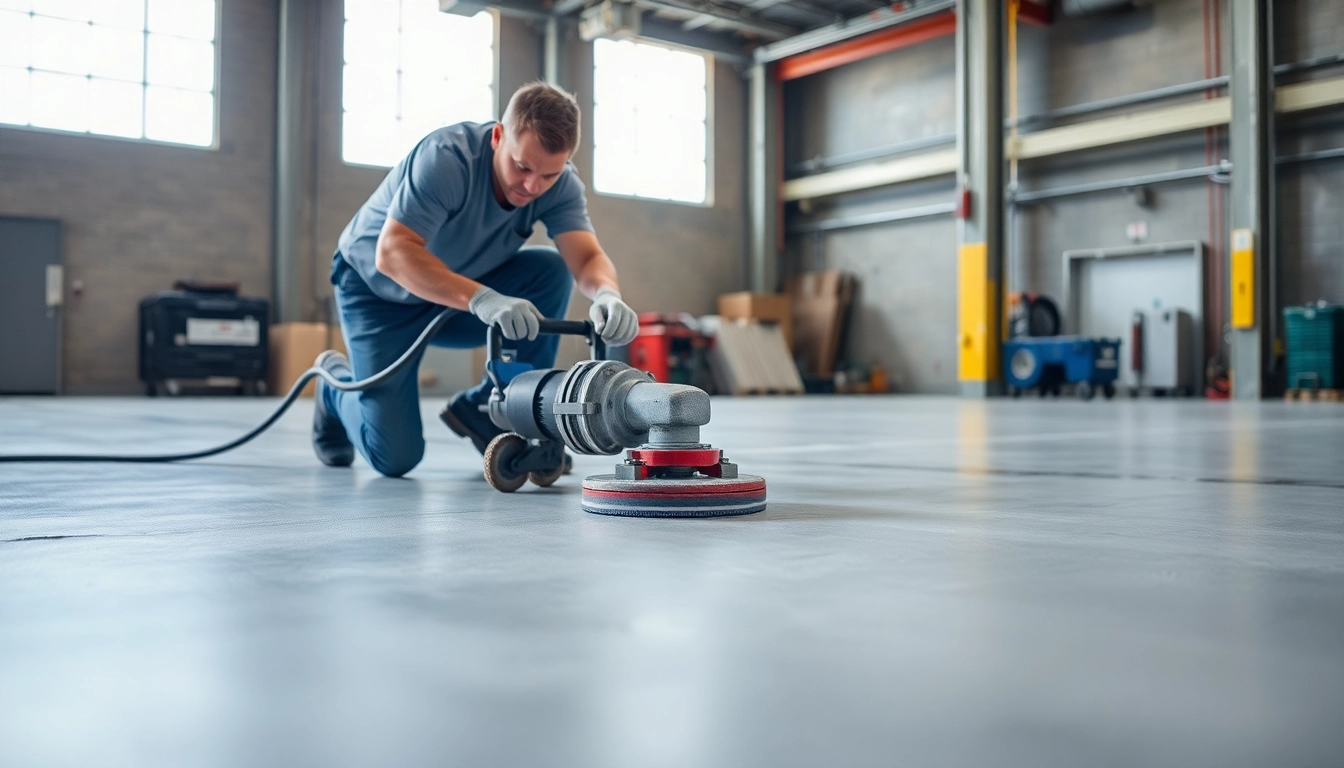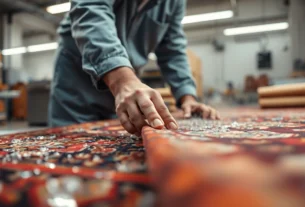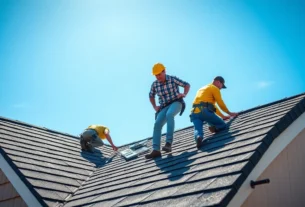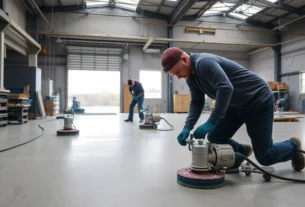Understanding the Importance of Floor Preparation in Birmingham
When embarking on any flooring project in Birmingham, one of the most critical early steps is proper floor preparation. The city’s unique climate, diverse building standards, and existing infrastructure demand meticulous attention to surface conditions before installing new flooring materials. Effective floor preparation ensures not only aesthetic appeal but also long-lasting durability, safety, and optimal performance of the finished floor. For both homeowners and contractors, understanding the nuances of proper surface preparation can significantly influence project success and prevent costly repairs down the line.
In this article, we delve into the vital aspects of floor preparation Birmingham, exploring best practices, emerging technologies, and how to choose qualified professionals to deliver outstanding results.
Why Proper Floor Preparation Matters
Foundation for Long-Term Durability
The foundation of a reliable and durable floor lies in its preparation. An uneven or poorly prepared surface can lead to issues such as cracking, warping, and delamination over time. For example, unlevel concrete slabs are prone to stress concentration, which can cause tiles or resin coatings to crack prematurely. Proper surface preparation ensures the base is smooth, level, and free of contaminants, providing a strong anchor for subsequent flooring layers.
Enhancing Aesthetic Quality
Great flooring isn’t just about material choice; it’s about flawless installation. Surface imperfections distort the appearance, leading to uneven seams and blotchy finishes. Adequate preparation—including cleaning, grinding, and repair—creates a perfect visual canvas, allowing the flooring to look its best and stay pristine longer.
Safety and Compliance
Surface imperfections can pose safety hazards — trip hazards, uneven surfaces, and weak spots. In Birmingham’s commercial sectors especially, adherence to safety regulations and standards is mandatory. Proper preparation mitigates these risks, ensuring compliance while safeguarding users.
Common Challenges in Birmingham Surface Preparation
Concrete Surface Irregularities
Many Birmingham properties feature existing concrete slabs with irregularities due to settling, age, or poor initial installation. Overcoming these discrepancies requires advanced grinding and repair techniques to achieve a level surface.
Moisture and Humidity Issues
Birmingham’s climate—characterized by humidity and rainfall—can lead to moisture infiltration, affecting adhesion and curing. Proper moisture testing and mitigation strategies are essential before laying floors, especially for resin and epoxy applications.
Contaminants and Debris
Surface contaminants such as oil, grease, or old adhesive residues hinder proper bonding. Ridding the surface of these impurities through thorough cleaning and shot blasting is necessary to ensure optimal adhesion of new flooring materials.
Material Compatibility
Each flooring type—hardwood, vinyl, epoxy, or tile—has specific preparation requirements. Addressing these correctly prevents future issues like bubbling, cracking, or lifting.
Impact of Poor Preparation on Flooring Longevity
Neglecting proper surface preparation can drastically reduce the lifespan of your flooring. For example, an unleveled subfloor under hardwood can cause uneven expansion, resulting in gaps or buckling. Similarly, failing to moisture test concrete slabs can lead to moisture vapor transmission, causing epoxies and coatings to peel or delaminate. Over time, such issues translate into costly repairs, increased downtime, and compromised safety. Hence, investing in thorough preparation upfront is vital for maximizing the return on your flooring investment in Birmingham.
Best Practices for Floor Preparation in Birmingham
Diamond Grinding and Concrete Repair Techniques
Diamond grinding is a cornerstone technology in Birmingham’s floor preparation toolkit. It involves using diamond-tipped tools to level and smooth concrete surfaces, removing existing coatings, adhesives, or surface flaws. This method provides a clean, flat, and textured surface that enhances adhesion. Concrete repair—such as filling cracks, spalls, or hollow spots—complements grinding, creating a uniformly solid substrate.
Effective repair not only restores structural integrity but also prevents future problems. For instance, addressing small cracks early prevents them from expanding, which could undermine the entire surface integrity.
Surface Cleaning and Moisture Testing
Before any coating or overlay application, thorough cleaning is non-negotiable. Methods include shot blasting, vacuuming, and acid etching to remove dirt, grease, and loose particles. Simultaneously, moisture testing—using calcium chloride tests or hygrometers—detects excess humidity that can interfere with curing. If moisture levels exceed acceptable limits, solutions like vapor barriers or moisture-proof coatings must be implemented.
Choosing the Right Preparation Method for Different Floors
Not every surface requires the same preparation technique. For example:
- Existing epoxy coatings: require mechanical removal or profiling to ensure proper bonding.
- Uneven concrete: needs grinding or self-leveling compounds.
- Wood subfloors: require moisture testing and reinforcement if weak.
Working with experienced professionals allows for tailored preparation, aligned with the specific floor and project requirements.
Step-by-Step Guide to Floor Preparation for Contractors and Homeowners
Initial Surface Assessment
The process begins with a comprehensive evaluation: inspecting for cracks, spalling, moisture issues, and surface cleanliness. Documenting these issues provides a clear plan for the necessary repairs or treatments.
Preparation Process and Equipment Used
Key steps include:
- Cleaning and degreasing the surface thoroughly.
- Mechanical profiling via shot blasting, scarifying, or diamond grinding.
- Repairing cracks or damaged areas with suitable fillers.
- Applying moisture barriers if needed.
Advanced equipment such as planetary grinders, shot blasters, and moisture meters enhance efficiency and quality.
Ensuring Readiness for Flooring Installation
Final checks involve verifying levelness with a laser level, testing for residual moisture, and ensuring the surface is free of debris. Only once these criteria are met should the flooring installation commence.
Innovative Technologies in Floor Preparation
Resin and Self-Leveling Compounds
Modern floor prep incorporates self-leveling compounds that repair surface imperfections quickly and with minimal disruption. They are ideal for preparing substrates before epoxy coatings or vinyl overlays, ensuring a smooth, flat surface.
How Modern Tools Improve Efficiency
Technologies such as remote-controlled grinders, dust extraction systems, and high-precision moisture testers have revolutionized floor prep in Birmingham. These tools reduce labor time, minimize environmental impact, and enhance safety standards.
Case Studies of Successful Prep Projects in Birmingham
One notable example involved a large commercial warehouse where diamond grinding eliminated significant unevenness and moisture was controlled using advanced testing devices. The result was a seamless epoxy coating with a 10-year lifespan—showcasing the importance of embracing cutting-edge tools.
Choosing a Professional Floor Preparation Partner in Birmingham
Criteria for Selecting Experienced Contractors
Opt for licensed, certified professionals with proven track records. Look for evidence of adherence to safety standards, industry certifications, and positive client reviews. Local expertise is vital, given Birmingham’s specific building codes and environmental considerations.
Questions to Ask During Consultation
Key questions include:
- What preparation techniques do you recommend for my specific surface?
- Can you provide before-and-after case studies?
- What moisture testing methods do you use?
- How do you ensure safety and environmental compliance?
Ensuring Quality and Safety Standards
Inspect the contractor’s certifications, safety records, and warranties offered. Verify that they utilize up-to-date equipment and environmentally friendly practices. Transparent communication and detailed quotes also indicate professionalism.



